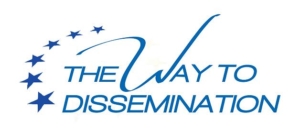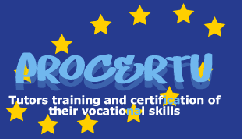Futurum establishes cooperation with other international mobility project organizations to realize common projects within the Erasmus + goals. Such cooperation adds to the quality of programs offered by Futurum by creating an environment for exchange of best practices with international partner organizations, better networking opportunities for the project beneficiaries and multiplied impact by providing more geographic and professional placement locations for the project beneficiaries.
Previous projects include:
CEMTINET: Cementing Training Institutions – A New Approach To Mobility
 October 2006 – October 2008, together with seven other partners from six EU and candidate countries, Futurum took part in creating an innovative network of training institutions to respond to demands in the cement sector throughout Europe. The project CEMTINET (“Cementing Training Institutions”), promoted by Turkish organizations CEIS and EDUSER as a pilot project within the Leonardo da Vinci framework, determined common training tools and delivered common simultaneous trainings in participating countries.
October 2006 – October 2008, together with seven other partners from six EU and candidate countries, Futurum took part in creating an innovative network of training institutions to respond to demands in the cement sector throughout Europe. The project CEMTINET (“Cementing Training Institutions”), promoted by Turkish organizations CEIS and EDUSER as a pilot project within the Leonardo da Vinci framework, determined common training tools and delivered common simultaneous trainings in participating countries.
This sustainable approach served as a model to be used by similar institutions and organizations in an enlarged Europe in the future. Within the frame of this project, the role of the cement sector increased in the economic development in Turkey and the other countries. Also, the project contributed to the harmonization of vocational training quality-oriented practices. CEMTINET was also a platform for strengthening European transnational ties and mobility thus moving towards more integrated labor market area in Europe.
The Way to Dissemination: Social Integration and Professional Development of Young People at Risk and Drop Outs.
 Within the EU funded Leonardo da Vinci Partnership Project five countries (Poland, France, Germany, Norway, Bulgaria), with Futurum representing Poland on the project, partnered to come up with a unified strategy to increase opportunities for a successful social integration and professional development of young people at risk. The concept was first developed and tested in Norway in 2004 where the target group consisted of VET school drop outs and unregistered young people who were unemployed. In order to respond to an increasing unemployment rate and school drop out statistics in Europe at the time, the project developed a method of cooperation between labor market, especially small and medium enterprises, educational institutions and social welfare structures to create possibilities for 15 to 20 year-old unemployed or uneducated people to find their way in life through guidance and cooperation.
Within the EU funded Leonardo da Vinci Partnership Project five countries (Poland, France, Germany, Norway, Bulgaria), with Futurum representing Poland on the project, partnered to come up with a unified strategy to increase opportunities for a successful social integration and professional development of young people at risk. The concept was first developed and tested in Norway in 2004 where the target group consisted of VET school drop outs and unregistered young people who were unemployed. In order to respond to an increasing unemployment rate and school drop out statistics in Europe at the time, the project developed a method of cooperation between labor market, especially small and medium enterprises, educational institutions and social welfare structures to create possibilities for 15 to 20 year-old unemployed or uneducated people to find their way in life through guidance and cooperation.
Main strategies of “The Way to Dissemination” project assumed:
- Effective strategies for prevention from dropping out from school
- Collaboration between schools, local communities and business
- Involvement of the family
- Professional development for youth at risk
- Alternatives of the status quo
- Every person in focus – individualized mentoring
- New educational technologies implemented for this special target group
IT Call: Integrated Training for Efficient Employability of Disabled People as Call Center Representatives
 Futurum represented Poland on the project, working with partner organizations from six other countries (Slovakia, Belgium, Spain, Turkey and United Kingdom) to increase a number of disabled persons employed as call center representatives. The goal of the project was to provide home based employmemt opportunity for the disabled to stay active on the job market. Thanks to available technology (the internet and intranet), the disabled persons could be actively employed without the need to be physically present at the company’s premise. The project also included informal training and guiding package addressing disabled people and information campaign for both an organization and the disabled about technical possibility of employment in form of the home based employment.
Futurum represented Poland on the project, working with partner organizations from six other countries (Slovakia, Belgium, Spain, Turkey and United Kingdom) to increase a number of disabled persons employed as call center representatives. The goal of the project was to provide home based employmemt opportunity for the disabled to stay active on the job market. Thanks to available technology (the internet and intranet), the disabled persons could be actively employed without the need to be physically present at the company’s premise. The project also included informal training and guiding package addressing disabled people and information campaign for both an organization and the disabled about technical possibility of employment in form of the home based employment.
Actions that were taken under the IT Call:
- Identification of the present status of disabled people in call centers and home based employment
- Evaluation of the current level of communication technology with respect to the possibility of introducing home based call center employment
- Research in the area of existing call centers as far as their diversification with respect to the minimum requirements that need to be fulfilled to introduce home based call center
- Creation of an informal training guide with practical hints concerning home based employment possibilities in call centers
- Creation of guidelines for potential disabled employees to find opportunities to be employed in call centers
PROCERTU: Academic Tutor Training
 The project emphasized the role of an academic tutor in a higher educational institution by providing them with necessary skills and competences to assist students in their educational and vocational placements and guide them throughout their educational path. Academic tutors were provided with professional training in serving as intermediaries between students, educational institutions or a vocational centers and companies where the trainees are placed. The project also helped adapt the skills for professors, researchers and teachers who usually serve as academic tutors and need professional training for the function.
The project emphasized the role of an academic tutor in a higher educational institution by providing them with necessary skills and competences to assist students in their educational and vocational placements and guide them throughout their educational path. Academic tutors were provided with professional training in serving as intermediaries between students, educational institutions or a vocational centers and companies where the trainees are placed. The project also helped adapt the skills for professors, researchers and teachers who usually serve as academic tutors and need professional training for the function.
In partnership with other international counterpart organizations Futurum cooperated on developing the PROCERTU Academic Tutor Training to respond to the needs of professional training in educational system within the framework of the former Life Long Learning Program. The PROCERTU project addressed academic mentors and tutors, engineer instructors, professors and lecturers as well as training unit instructors to train them in performing responsible advisors and roles towards informed practical and educational placement of students and to define the mission and objectives of academic tutoring.
As a result, the PROCERTU project created the academic tutor profile, established certificates for academic tutoring, devised professional customized training program for academic tutors. Per guidance by tutoring professionals the project also provided pedagogical training platform and good practices handbook.
